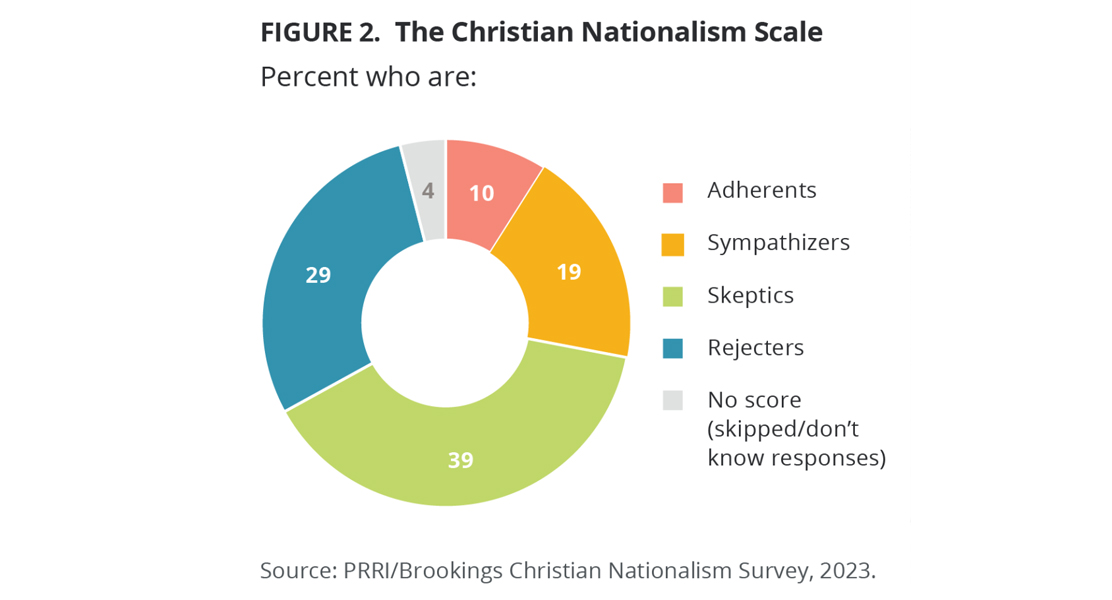New Study: 68% of Americans disagree with Christian nationalism beliefs

A solid majority of Americans disagree with beliefs associated with Christian nationalism, according to a new survey by the Public Religion Research Institute (PRRI) and Brookings.
Five statements were posed to more than 6,000 participants:
- The U.S. government should declare America a Christian nation.
- U.S. laws should be based on Christian values.
- If the U.S. moves away from our Christian foundations, we will not have a country anymore.
- Being Christian is an important part of being truly American.
- God has called Christians to exercise dominion over all areas of American society.
Only 10% of Americans are categorized as “adherents” of those views, while another 19% “sympathize with them.” On the other side, 29% of respondents reject completely those beliefs and an additional 39% somewhat disagree with the statements.
Who are the adherents and sympathizers of Christian nationalism? The report paints a vivid if unsurprising picture.
“Nearly two-thirds of white evangelical Protestants qualify as either Christian nationalism sympathizers (35%) or adherents (29%). … Christian nationalism adherents are nearly twice as likely as Americans overall to report attending religious services at least a few times a month (54% vs. 28%). … 44% of Christian nationalism adherents report that religion is the most important thing in their lives. … [S]upporters of Christian nationalism are far less likely than other Americans to have regular interactions with people who hold religious beliefs that differ from their own. … majorities of Christian nationalism sympathizers (53%) and adherents (57%) disagree that white supremacy remains a problem.”
BJC Executive Director Amanda Tyler attended the release of the survey this week. In a Twitter thread, she noted that Christian nationalism isn’t a diagnosis, but it’s a spectrum. When the results were shown about the correlation between Christian nationalism and attending religious services, she Tweeted, “It begs the question: is your church teaching the gospel of love, embodied in Jesus the Christ or worshipping the false idol of power?”




